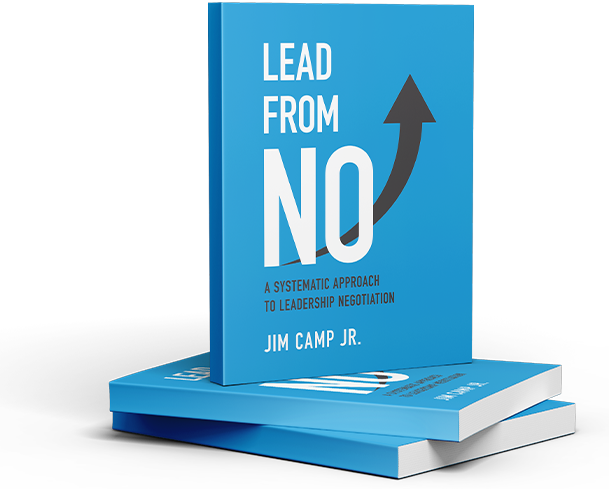If we don’t examine our negotiation budget, we will make bad decisions and compromise more than necessary. Since the onset of the pandemic, we have been challenged in how we think and behave at work, home, school, and other environments. We once took all this for granted. Now, there are more and different types of decisions to be made each day.
More decisions
We need to keep ourselves and others safe. Often, we need to say “no” more and use our right to veto. We must postpone decisions that we once did not think too much about, and say ‘yes’ to some activities that we normally would have passed.
These new choices are nothing more than decisions that we need to make in a new environment. Since the process of making decisions is just another negotiation, let’s return to the definition of negotiation. Negotiation is the effort of creating agreements between two or more parties, with all parties having the right to veto.
Let’s focus on one aspect of negotiation, the effort required. The effort is associated with the work that we need to invest in any negotiation. This work has a cost, and we refer to this cost as the “negotiation budget.
Like all budgets, your negotiation budget needs to be managed carefully and conserved when possible.
Your budget to negotiate
The word budget makes us think of money, but here are three other parts of your negotiation budget.
1. Time. There is a finite number of hours in a day. You must wisely guard this time, or it will be stolen away from you.
2. Energy. It’s limited, depending on our health, age, schedule, day, week, year. Energy is not a constant. You allocate energy to all your physical and mental activities.
3. Money. You know how much you have in your bank accounts. If you need more money, you’ll need more earnings, or a loan or financing, which will use more time, energy, and emotion to secure.
4. Emotion. We can’t say enough about this because every decision has an emotional component. In the new environment, the emotional component of our day-to-day decisions has changed. We need to be aware of these changes and incorporate them into our decision-making process.
These changes force us to think about the opportunity trade-offs we are considering and how these affect our decisions. The opportunity trade-offs are also referred to as “opportunity cost.” Opportunity cost is the cost of the alternative that we didn’t choose. If we spend money on a car, we won’t have enough money to replace the roof. If we run a marathon on Sunday, we may be too tired for the big client presentation on Monday.
Opportunity cost also means that there are tradeoffs between time, energy, money, and emotion. To save many hours, we hire a painter, but it costs us more money. Spending hours in a meeting with a difficult customer may deplete you of energy later in the day.
We often use time as our constraint, “I don’t have enough time.” Also, you’ve probably had someone say to you, “Why not? I know you can afford it,” when you passed up on something.
Weighting your negotiation budget
In the Camp System, we weight the four parts of the negotiation budget based on their importance in the negotiation and decision-making process.
Time and money are quantitatively measured, while energy and emotion are qualitatively measured.
Time = 1x
Energy = 2x
Money = 3x
Emotion = 4x
Time 1x
Time is fixed. Once it’s gone, you can’t get it back. You can also measure it. Before you enter into any negotiation, consider the amount of time it will take you to plan, execute, and implement all of the decisions that you and the other party agree upon.
Consider how much time can you commit to the negotiation, so you can:
- prepare your approach
- describe what you know and don’t know, so you budget time to discover new information
- confirm agreed-upon decisions
- implement any possible solutions
You should define the amount of time you are willing to commit before you start any negotiation. In negotiation, the decisions are made one at a time, so you need to give yourself and your respected opponent sufficient time to see and consider all the relevant decisions covered.
Energy 2x
Energy is a commitment to be present and in the moment. This is a challenge considering our tendency to multitask to save time. In negotiation, and when you are making important decisions, you can not afford to lose focus.
Even if you have budgeted the time to negotiate, you will put yourself at a disadvantage to your potential if you do not commit your undivided attention. This lack of focus will cause you to waste your time and create agreements that are not in your best interest.
Compromise is often present when energy drops. If you get tired, you lose focus, so expect your negotiation to consume your energy. Plan for it and conserve it. When you are negotiating, focus your energy to efficiently and effectively do your prep, listen, practice good behaviors, formulate, and ask good questions.
Money 3x
Money is an investment. This impacts your decision about time and energy and even emotion too. Will you talk on the phone or fly out to see someone? What’s your bottom-line fee for a client? Money reflects how serious someone is; it’s a different level of commitment.
Emotion 4x
The most important part is emotion. Emotion means, have you vested yourself in this decision? If you aren’t vested – all amounts of time, energy, and money won’t make it work. No amount of data, facts, or logic will convince you to change your mind. That’s why emotion is most heavily weighted.
Example 1 – “It’ll only take an hour.”
This is a straightforward situation to practice. Let’s say your in-law’s lawnmower breaks. Your partner agrees to loan them yours and asks you to drop off the lawnmower this afternoon saying, “It’ll only take an hour.” Now you need to make a decision.
Will you drop off the lawnmower today as requested? Or politely exercise your right to veto and say no, you can’t do it?
Will you offer to discuss with your partner the terms, conditions, or tradeoffs associated with dropping off the lawnmower vs. not dropping it off? Maybe before 2020, this would not have been a big deal, but with the new demands on your time, energy, money, and emotion, you have a decision to make.
The first place to start is how much “budget,” if any, do I want to invest in this decision? If you decide to proceed then consider:
Time: 1x. To drive to your in-laws and come home, add an hour.
Energy: 2x. It sounds easy; drop off the lawnmower. But if you are a sports coach, you may have to send tomorrow’s team schedule to the parents tonight, so you’ll be up an hour later. The drive today and the lost hour of sleep will cost you energy.
Money: 3x. The trip doesn’t cost you more money, other than the gas for the car.
Emotion: 4x. If you could drop off the lawnmower like UPS, things would be easy. You know your in-laws will ask you to stay for dinner, have a drink, and start asking about the kids. You also know that the parents of the team members need to know the schedule. Will you feel guilty about your decision to help only one of them today, so you get enough sleep for work tomorrow? That’s emotion.
This was an example to see how a 1-hour task isn’t always a 1-hour task. If you train yourself to consider the four parts of a negotiation budget, using easy situations like these, you’ll be able to apply it to more complicated negotiations.
Example 2 – More than just a car
Your 10-year-old car is on its last leg.
TIME: 1x. Read Consumer Reports and reviews, visit 3 auto dealers to test drive, look online.
ENERGY: 2x. Car shopping isn’t a passive activity, like dropping off a lawnmower. It requires a lot of quality thought, and that takes energy.
MONEY: 3x. You know how much you can pay cash and your budgeted monthly payments.
EMOTION: 4x. Is money your bottom line? Do you care about what car your neighbors, friends, clients, and colleagues have thought or will think of your car purchase?
How much ego is attached to your car?
If you buy a $20K used car, and park next to a Tesla, how will you feel? (Nothing, we hope.)
If your daughter drives your car home from work at 11 pm, how will your emotions change your budget? Will you spend more on safety and reliability?
Especially with luxury purchases, the emotional triggers are expertly set to stir you.
The parts of the negotiation budget – time, energy, money, and emotion – are linked like dominoes. When one of these gets out of control, it affects the others.
As the dominoes fall, we become more needy. We feel that we’ve invested so much, that we must get something out of it. This breeds compromise, bad deals, and bad decisions that you want to avoid.
The negotiation budget is part of the Checklist of the Camp System. Management of the budget, especially the emotional part, is critical in our negotiation preparation and execution. Find out more in our Camp Negotiations team training and coaching.





